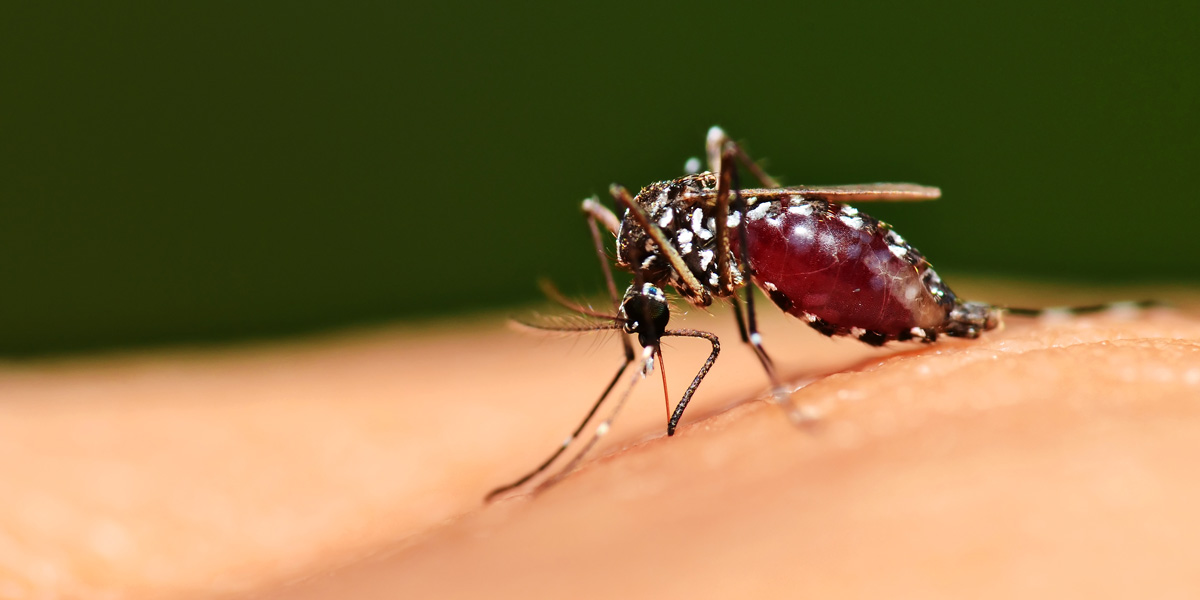GMO mosquitoes spreading out of control in Brazil
Published: October 2, 2019
Category: GMO News, The Organic & Non-GMO Report Newsletter

According to a new scientific publication, genetically engineered mosquitoes produced by the biotech company Oxitec (Intrexon) have escaped human control after trials in Brazil. They are now spreading in the environment.
The yellow fever mosquitos (Aedes aegypti) are genetically engineered to make it impossible for their offspring to survive. After release they were supposed to mate with female mosquitos of the species which transmit infectious diseases, such as Dengue fever, to diminish the natural populations.
However, the newly published research shows that many offspring of the genetically engineered mosquitos actually survived and are spreading and propagating further. According to the scientists, between 10-60 % of the mosquitoes in the region concerned are inheriting parts of the genome of the mosquitoes released in the trials. These findings are also confirmed in neighboring regions where no such trials were conducted.
The long-term consequences for the transmission of diseases, the number of insects and the interactions with the environment cannot be predicted. The mosquitoes used for the genetic manipulation are originally from Cuba and Mexico. These insects used in the laboratory have now mixed with the Brazilian insects to become a robust population which can persist in the environment over a longer period of time. They might replace the original insects in the long term and even enhance the problems associated with the mosquitoes.
Oxitec misled the public and regulators regarding the GM mosquitoes, which it falsely described as “self-limiting.”
The new paper, which was published in Scientific Reports, shows that Oxitec’s strategy to reduce the population of mosquitoes did not work.
Oxitec attacked the study and filed a complaint to Nature Research, publishers of the study, “to address the range of misleading and speculative statements” made about Oxitec’s “mosquito technology.”
But the study’s lead author, Jeffrey Powell stands behind the key findings.
“I stand fully by the scientific integrity of the work we report. No responsible individual has called into question the rigor of the science,” he wrote in an email to Cornell’s pro-GMO Alliance for Science.
Sources: GM Watch, Scientific Reports, Sustainable Pulse
To view original articles, visit:
https://www.gmwatch.org/en/news/latest-news/19127-genetically-engineered-mosquitoes-out-of-control
www.nature.com/articles/s41598-019-49660-6
Brazilian scientist called for suspension of GM mosquito trial, said Oxitec treated local population exposed to mosquitoes with contempt
An article in the Brazilian newspaper Rede Brasil Atual said that Dr. José Maria Gusman Ferraz, a member of Brazil’s biosafety commission (CTNBio), which approved the GM mosquito project, called on his fellow regulators to suspend the release of the mosquitoes until further health and environmental impact studies were done. In particular, he highlighted the contempt that he felt Oxitec was displaying towards the safety of the local population, who he says were being reduced to mere guinea pigs.
Dr. Ferraz told Rede Brasil Atual reporter, Cida de de Oliveira, “The commission was warned about the possibility of this mosquito establishing itself permanently in the environment, as well as about crossbreeding between the GM and wild mosquitoes, but most members of the commission completely dismissed these concerns.”
Dr. Ferraz said it isn’t surprising that a commercial company like Oxitec that wants to profit from selling its products may be willing to mislead people or omit unfavorable data. But “What we cannot accept,” he says, is “the lack of scientific ethics” on the part of regulators and their willingness to ignore biosafety concerns and turn local people into guinea pigs, “vulnerable to the negative effects of a technology that has generated hybrids that are possibly resistant to insecticides.”
Reporter Cida de Oliveira wrote: “Without being consulted or even informed about the risks to which they could be exposed, the population of the Pedra Branca district in Jacobina, Brazil was subjected to an experiment conducted between 2013 and 2015” with the authorization of CTNBio.
Sources: GM Watch, Rede Brasil AtualTo view original articles, visit:
https://www.gmwatch.org/en/news/latest-news/19144-guinea-pig-population






